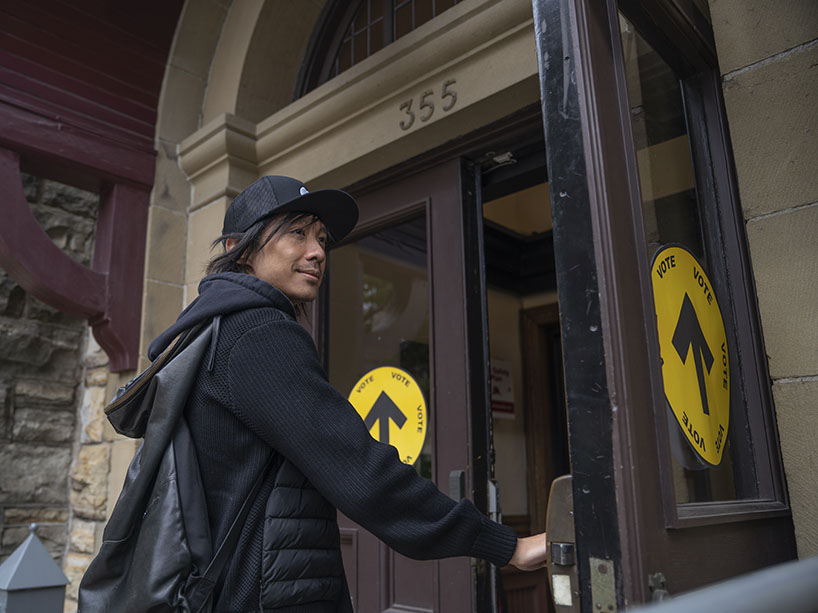Voting in the provincial election is easy, so flex that civic muscle

Election day is Thursday, February 27! Your vote is your voice so make it heard in the provincial election. Mark your ballot for the candidate and party that speaks for you. Photo credit: Elections Canada
You count! This week, help decide your future on election day, Thursday, February 27. Whether it’s increased funding for education, improved job prospects or a health care system that meets your needs, your vote helps shape a future that reflects your vision, values and priorities.
Election day is February 27, vote from 9 a.m. to 9 p.m.
Visit Elections Ontario (external link) to:
- Check if you're registered to vote (external link) , it only takes a minute
- Find your polling station - you must vote at your assigned polling location
- Confirm what ID you need to prove your address (there are many options)
“Young people have a powerful role to play in shaping their future and building a more inclusive and responsive democracy. Whatever the issue you care about, the provincial election is impacting you,” says John Beebe, director TMU’s Democratic Engagement Exchange (external link) , which works to reduce barriers to participation in our democracy.
The issues that matter to you
The provincial government is responsible for shaping policies that effect your quality of life. Some provincial government responsibilities (external link) include:
- Education (including colleges and universities)
- Healthcare (primarily)
- Transportation
- Labour standards
- Social Services
- Highways
- Hospitals
- Natural Resources and Environment
Students, like the general public, have many issues they care about. If your top issue is housing affordability, education or transit, Beebe explains the province takes the lead on all of these. If your issue is climate change, “provinces have a critical role to play.” If your issue is job prospects and the uncertainty created by tariffs, he says that’s the purview of the province .
“It doesn't have to be complicated. Don't be deterred from voting because you don't feel you're an expert. Just look for platforms on the issues that are important to you.”
One-stop shop for political platforms
The Toronto Star (external link) is offering an up-to-date Ontario election promise tracker. Another great resource is Toronto Today (external link) which outlines where candidates stand on major issues.
For a quick overview of the Ontario Liberal Party, NDP and Green Party’s policy plans, read these recent TMU Democracy Forum event recaps from The Dais:
Bonnie Crombie at the TMU Democracy Forum (external link)
Marit Stiles at the TMU Democracy Forum (external link)
Mike Schreiner at the TMU Democracy Forum (external link)
(Doug Ford of the Conservative party declined to participate)
You can also do some research by talking to your peers, profs, family members and colleagues about the election to help get a sense of the candidates and their platforms.
Duty calls: why active citizenship matters
Voter turnout was the lowest in Ontario history in the last provincial election with only 44 per cent of registered voters participating.
Low voter turnout means that important issues are determined by a limited group of voters that may not reflect the needs and priorities of underrepresented and less affluent groups, including students.
Voting gives you the power to help shape key decisions that will impact your daily life. Broader electoral participation also increases public confidence in our leaders and political institutions.
So flex your civic muscle and see you at the polls!
Related articles:
How gender-based violence in politics undermines our democracy
TMU researchers influence $2.4B government funding plan to maintain Canada’s AI advantage
Can AI help voters decide who to vote for?
TMU Black Health Lead on breaking down barriers to medical education access